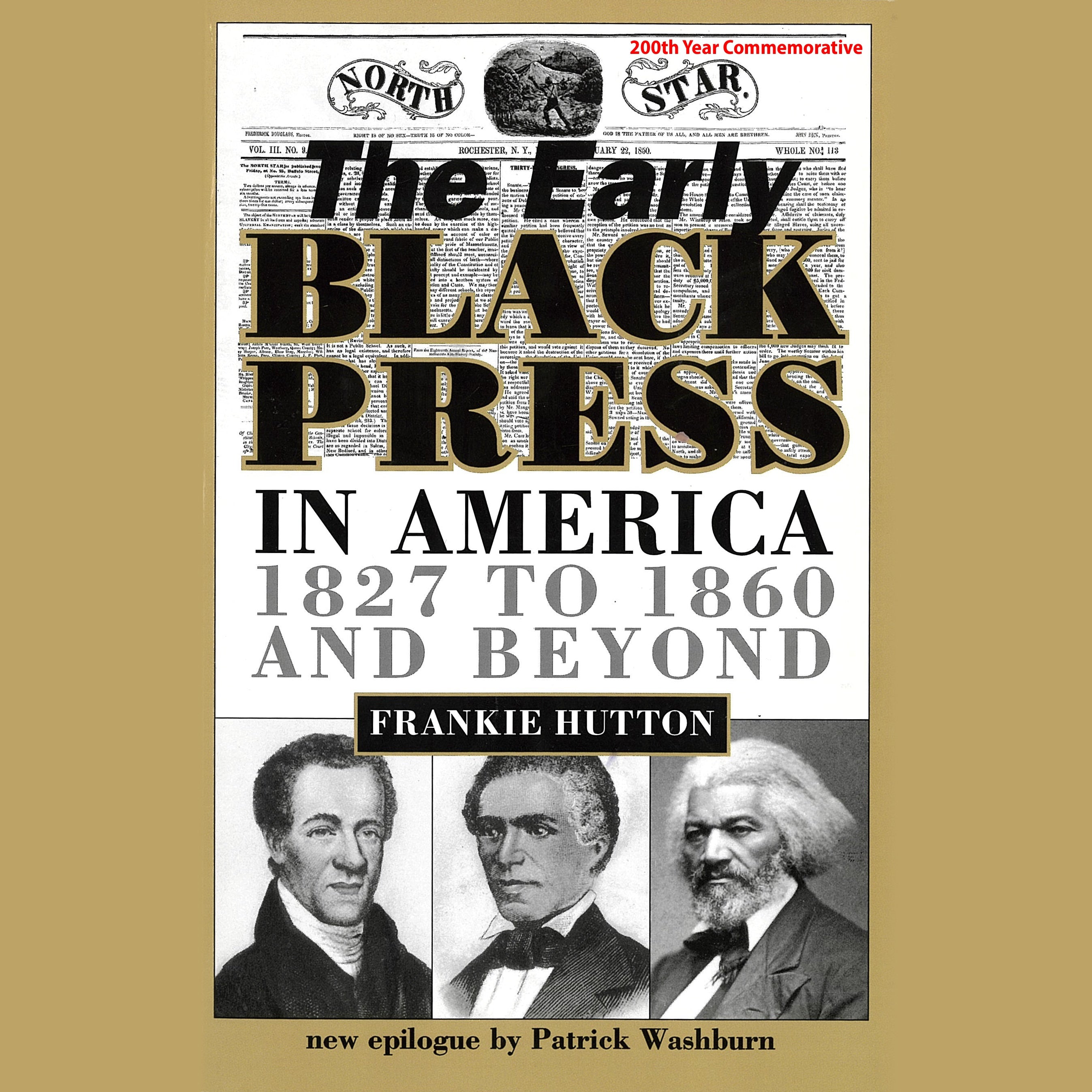
The Early Black Press in America, 1827-1860 and Beyond
“The Early Black Press in America…opens new vistas for many readers who may be astonished to discover such a vital and vibrant tradition in the antebellum period when most Blacks were forbidden to read or write. Because it was so steeped in democratic idealism, the early Black press is surely an inspiration to all Americans during this time when real democracy is so fragile. I applaud the reissue of this valuable book.”
Dr. Tobe Levin von Gleichen, Associate, Hutchins Center for African and African American Research, Harvard University
Denied its true place in history, the pre-Civil War black press was a forward looking, socially responsible press. Through her analysis of the content of black newspapers and magazines from the 1830s to the 1860s, Frankie Hutton not only presents a prism through which to view the social origins of black journalism in America, but also examines how this little-known ethnic press interfaced with the whole of journalism during the dark ages of the profession. This revisionist evaluation is intended for students, experts, and journalists dealing with ethnic and American studies, especially those interested in African-American cultural history.
The black press gives trenchant witness to what middle-class free men and women of color thought and did in their own words. The columns of the newspapers and magazines revealed how middle-class blacks were engaged in significant community-building and humanitarian activities. The fledgling black newspapers and magazines, of which only seventeen are now extant for study, sought idealistically to uplift and vindicate blacks as well as to help them assimilate into mainstream America. This study analyzes the problems, beliefs, and work of black editors and then discusses their idealistic messages relating to such issues as women, youth, style, social mobility, and morality. An appendix lists the newspapers and journals under study, and the bibliography points to important primary and secondary source materials. This revisionist evaluation describes the problems, beliefs, and general outlook of leading middle-class blacks over more than three decades prior to the Civil War.
Original recording at Millrose Studio, New York City; technical editing and upgrades 2025 by SHOREFIRE Recording Studios in Long Branch, New Jersey.
Praise
